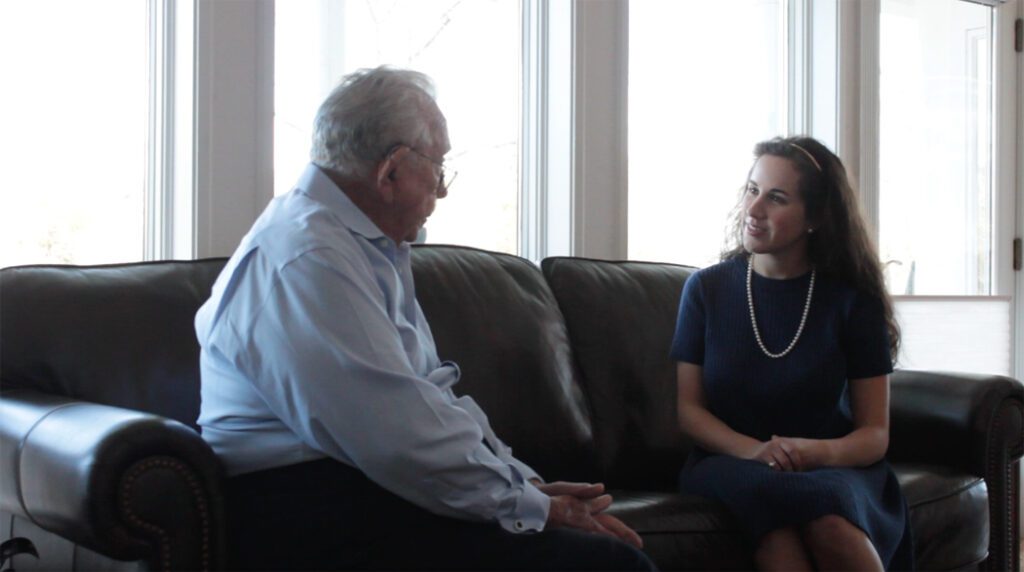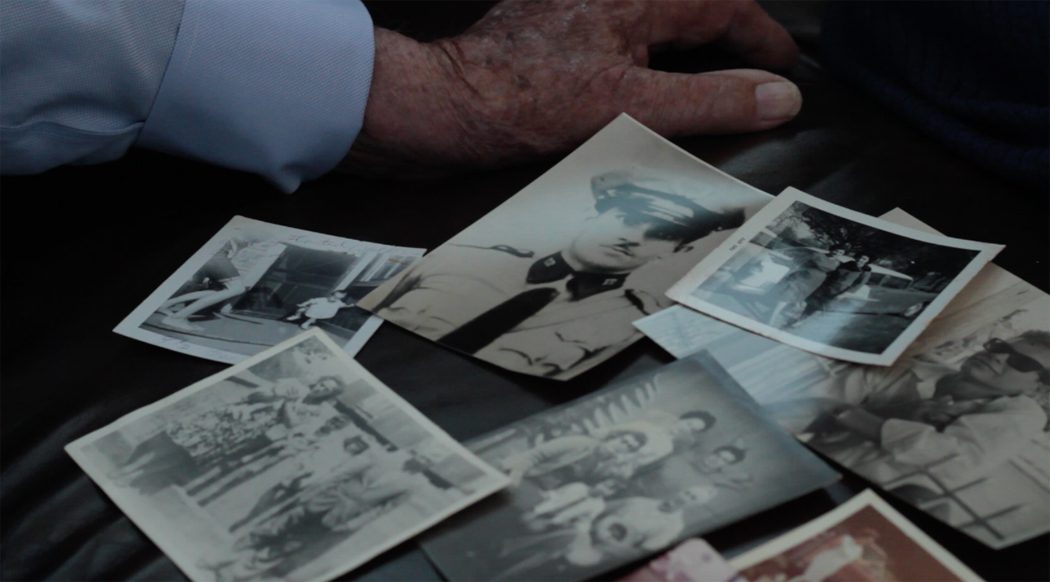Tips from family heirloom biographer, Olvia Savoie
Writer William Zinsser claimed, “The saddest sentence I know is, ‘I wish I had asked my mother about that.”
And it is the saddest sentence I know, too.
There are so many questions I wish I would have asked my grandfather. I heard vague snippets of his childhood of strawberry picking in rural Louisiana. I heard about how he underwent training to become a Marine on Parris Island. I heard about how he opened a prosperous jewelry store despite only having a third-grade education. But I didn’t ask for the details, for the meat on the bones of his memory. And now that he’s gone, I regret it.
Do you know how your parents met? Do you know what your grandfather’s favorite toy was? Do you know your dad’s war stories? Do you know your mother’s earliest memory?
Whatever the case for your family, your loved ones’ most cherished memories should be preserved. It’s up to you to ask questions and extract stories. It’s up to you to unearth your loved ones’ personal histories.
The task of preserving stories starts with making sure your loved ones are open to telling their stories. Here are some tips on getting your loved ones to open up.
1. Worth. Explain that their stories are invaluable and one-of-a-kind, since only they have lived their unique life’s journey. Tell them that recording their memories will leave a lasting heirloom that will inspire and inform future generations.
2. Comfort. Talk to them in a relaxed setting, such as in their living room, at their kitchen table, or on the front porch swing.
3. Timing. Choose to talk to your loved one on a day when they have time to share without feeling rushed. If they have tons of stories to tell, divide the conversations into increments.
4. Guide. Before you meet up, compile a list of prompts that you will use to guide the conversation.
Once the above preparations are made, you will need some prompts. Here’s a few to get your discussion started:
1. What’s your earliest memory?
2. Describe your childhood home.
3. Describe the town you grew up in. How has it changed?
4. Name your parents, grandparents, and their years of births.
5. Describe your siblings and things you did together as children.
6. Tell me about some trouble or mischief you got into as a child.
7. Tell me about your elementary school and how you got to and from school.
8. What were your favorite games to play as a child?
9. What were your favorite holidays and how did your family spend them?
10. What did you do for fun as a teenager?
11. Tell me about meeting your spouse.
12. What kind of dates did you go on?
13. Tell me about your wedding day.
14. If you served in the military, tell me about your experiences.
15. Describe the home in which you raised your family.
16. List your children and tell me about a special memory from each of their childhoods.
17. Tell me about jobs you’ve held.
18. Tell me about some of the most memorable places you have traveled to.
19. Tell me about your faith and how it has impacted your life.
20. When you look back on your life, what are you most grateful for?
The above list of prompts is just the beginning. When it comes to asking your loved ones about their memories and documenting answers, the opportunities are immeasurable. You can come up with dozens of possible prompts or simply stick with the to-the-point list provided above.
Finally, once you have the go-ahead to discuss personal memories with your loved one and have the prompts prepared, you need to know how to preserve all this newly discovered family history. Here’s a few ideas:
1. Turn on your phone’s recording app and record verbal stories.
2. Press record on your phone’s video camera and film the storytelling extravaganza.
3. Whip out an old-fashioned pen and paper and write down stories as you hear them.
4. Type the stories on a computer.
Whatever you do, realize your family’s stories are worth hearing, preserving, and sharing. Ask your mother (or father or aunt or grandfather) questions today before it’s too late.

Visit Olivia on her website at: www.RaconteurWriting.com





















